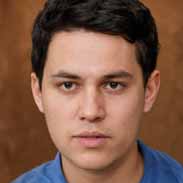Psych Ch 13 Test Answers – Flashcards
Unlock all answers in this set
Unlock answersquestion
When an object ___, its line on a speed-time graph slopes down to the right
answer
slows down
question
2 explanations for biological aging?
answer
1. programmed effects of genes / 2. Genetic and cellular material damage
question
telomeres purpose?
answer
Cap end of chromosome an protect it from destruction. Wears away as cell multiplies
question
Cross linkage theory of aging:?
answer
Fibers crosslink and cause tissue to become less elastic
question
Artherosclerossi?
answer
plaque build up in artery walls
question
T cells?
answer
originate in bone marrow and mature in Thymus. Attack antigens directly
question
B Cells/?
answer
Made in bone marrow. Secrete antibodies that multiply, capture antigens and permit blood system to destroy them
question
Thymus shrinkage?
answer
Shrinks after 20 and barely there after 50. Less t cells and cause b-cells to release less antibodies
question
Reproductive decline?
answer
- fewer quality ova / - sperm lose motility , semen volume goes down
question
basal metabolic weight?
answer
amt of energy used at rsting state delines as # of active muscle cells decline
question
How to treat obesity?
answer
1. Lifstyle change & better diet / 2. Keep record of food intake and weight / 3. Social support / 4, Teach problem solving skills to rpevent relapse / 5. extended intervention
question
Treatment for rape victims?
answer
1. screenings for victims at health care visits / 2. Validation of experience / 3. safety planning to prevent recontact/ 4, therapy and group sessions
question
What is postformal thought?
answer
Beyong piagets formal operational cognitive developement
question
What is Perry's Theory (Epistemic Cognition)?
answer
epistemic cognition: relections on how we arrived at facts/beliefs/ideas. dualistic thinking/relativistic thinking/commitment w.in relativistic thinking
question
dualistic thinking?
answer
dualistic thinking: diving info/values into right and wrong, good and bad. (i.e. ask the poet)
question
relativistic thinking?
answer
knowledge is embedded in framework of thought. Aware of diversity of opinions. Mult truths relative to context
question
Commitment w/in relativistic thinking?
answer
instead of choosing b/w opposing views, they formulate personally satisfying perspective that synthesizes contradictions
question
Labouvie-Vief's Theory on cognitive change in early adulthood?
answer
pragmatic thought: logic becomes tool for real world problem solving. Increased experiences with real world problems/ cognitive affective complexity: conflicting positive/negative feelings. recogn. diff. perspectives
question
Process of selecting a vocation?
answer
1. Fantasy period: fantasize about career options. / 2. Tentative period: 11-16 yrs. Career in terms of interests, abilities, values, arequirements. (I <3science and ppl so maybe a dr. or teacher). / 3. Realistic period: teens to twenties. Narrrow options
question
Realistic period?
answer
late teens to early twenties. First through exploration where info is gathered on careers. Then Crystalization where focus is on general vocational category and experiment before choosing one specific job
question
6 Personality types?
answer
investigative person / social person / realistic person / artistic person / conventional person / enterprising person
question
investigative person?
answer
scientific occupation . i.e. anthroplogist, physicist, engineer
question
social person?
answer
likes ppl. i.e. counseling, social work, teaching
question
realistic person?
answer
real world problems and working w/ objects. i.e. construction, plumbing, surveying
question
artistic person?
answer
emotional and need for individual expression. i.e. writer, muscian
question
conventional person?
answer
likes structured tasks, values material possessions. i.e. businessman, accounting
question
enterprising person?
answer
adventurous, persuasive, leader. i.e. politics, suerpvisor
question
Influences on senescence?
answer
genetics, lifestyle, environment, historical period
question
How many years for expert creativity?
answer
10 years



